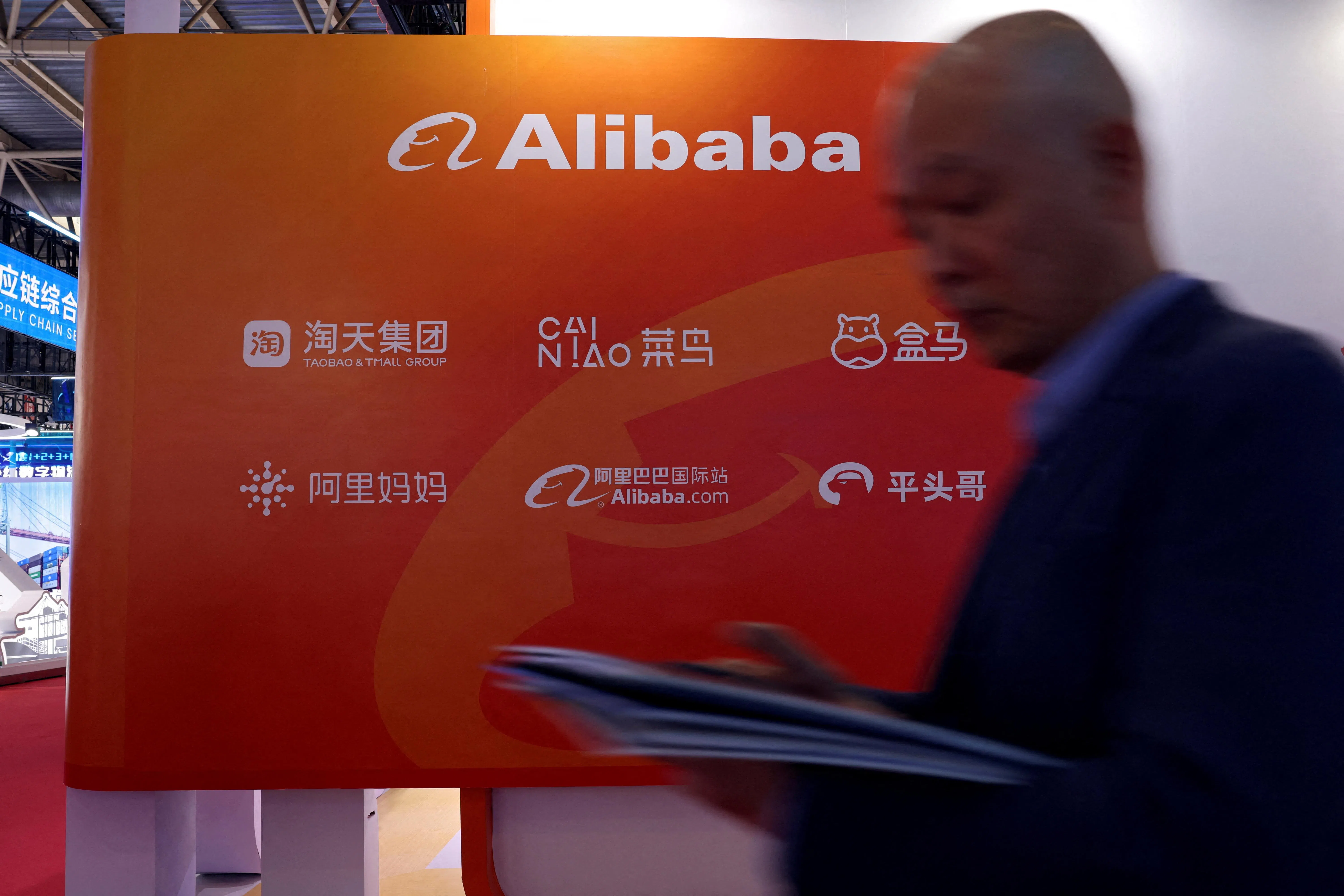CHINESE investors finally being able to buy shares of Alibaba Group Holding may provide a much-needed boost for the e-commerce firm’s stock, with an inflow of up to about US$20 billion into next year.
The company first hatched the plan for an upgrade to a primary listing in Hong Kong two years ago amid heightened tensions with the US. It may at last be realised by the end of the month, paving the way for it to join a programme that connects the Shanghai and Shenzhen bourses to the Hong Kong exchange.
This new source of funds via the so-called “southbound link” could support the shares, which have underperformed those of key rival Tencent Holdings amid concerns over the impact of competition and sluggish China consumption.
“We think the addition of Alibaba to the Stock Connect would have a positive impact on the stock and can help stabilise sentiment given that it is a household name among mainland investors,” said Marvin Chen, an analyst with Bloomberg Intelligence. Mainland holdings of the stock could reach double-digit percentages, similar to other tech giants, Chen added.
Shares of Alibaba are up only 2 per cent so far this year in Hong Kong, while major peers Tencent and Meituan are up 25 per cent each. China’s weak retail sales have hurt Alibaba’s key business, and price wars in cloud services are curbing the growth of a potential new driver.
On Thursday (Aug 15), Alibaba posted an anaemic 4 per cent rise in first-quarter revenue after its Chinese e-commerce business shrank for the first time in at least a year. Profit plunged 27 per cent, dispelling hopes of a quick turnaround.
BT in your inbox
Start and end each day with the latest news stories and analyses delivered straight to your inbox.
In addition to China’s struggling economy, Alibaba’s shares have contended in recent years with Beijing’s regulatory crackdowns and geopolitical tensions with Washington. The company originally devised the dual primary listing in 2022 amid fears of a potential delisting for its American depositary receipts, a threat which subsequently receded.
The next step for the plan is a vote by shareholders at the annual general meeting on Aug 22. If the upgrade to primary listing in Hong Kong is completed by the end of the month, the shares could join Stock Connect on Sep 9 at the earliest, according to Morgan Stanley.
“We expect some inflows but not major,” at about US$12 billion in the first six months after inclusion, or about 7 per cent of Alibaba’s total outstanding shares, analyst Laura Wang wrote in June. Bloomberg Intelligence’s Chen sees up to around US$19.5 billion in inflows, though “this will take time to accumulate and the initial impact will not be as large”.
Share price performance for other Stock Connect joiners has been mixed. XPeng and Kuaishou Technology declined in the month following the move. JPMorgan Chase quants strategist Xipu Han expects Alibaba to be more such as Meituan, whose stock outperformed the benchmark in the month after inclusion, with trading volume growing 20 per cent in six months.
Of course, how the stock does may hinge more on the company’s fundamentals and the environment in which it operates. But access for Chinese investors can add to the momentum, especially amid the recent outflow of foreign funds.
“Over the past two years, even Chinese investors have been disappointed by the big Chinese Internet stocks, so it’s hard to say whether Alibaba could follow its precedents’ trading patterns,” said Kenny Wen, head of investment strategy at KGI Asia. If the stock rises on positive news, “then the buying will be amplified as there will be additional source”. BLOOMBERG






